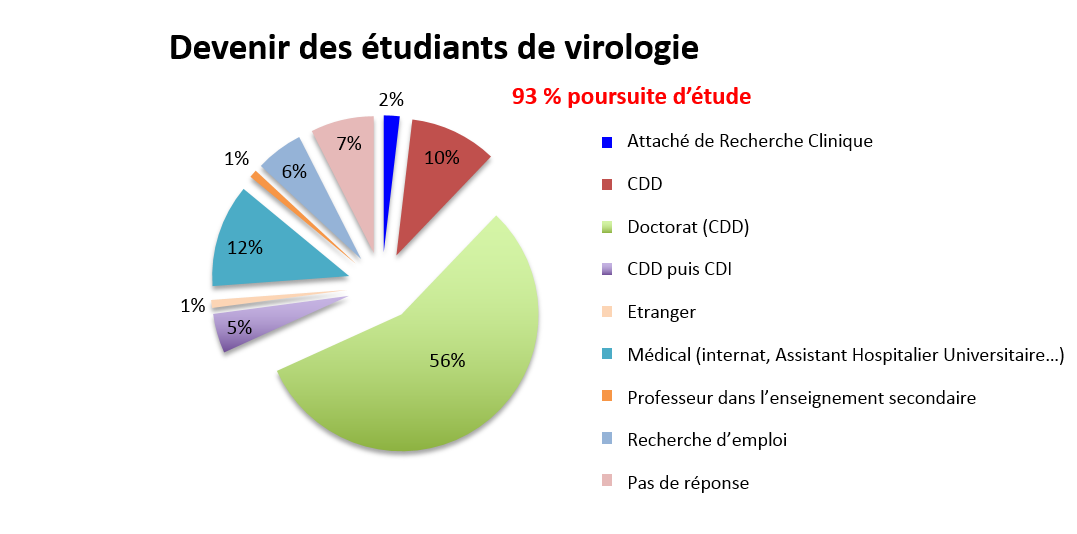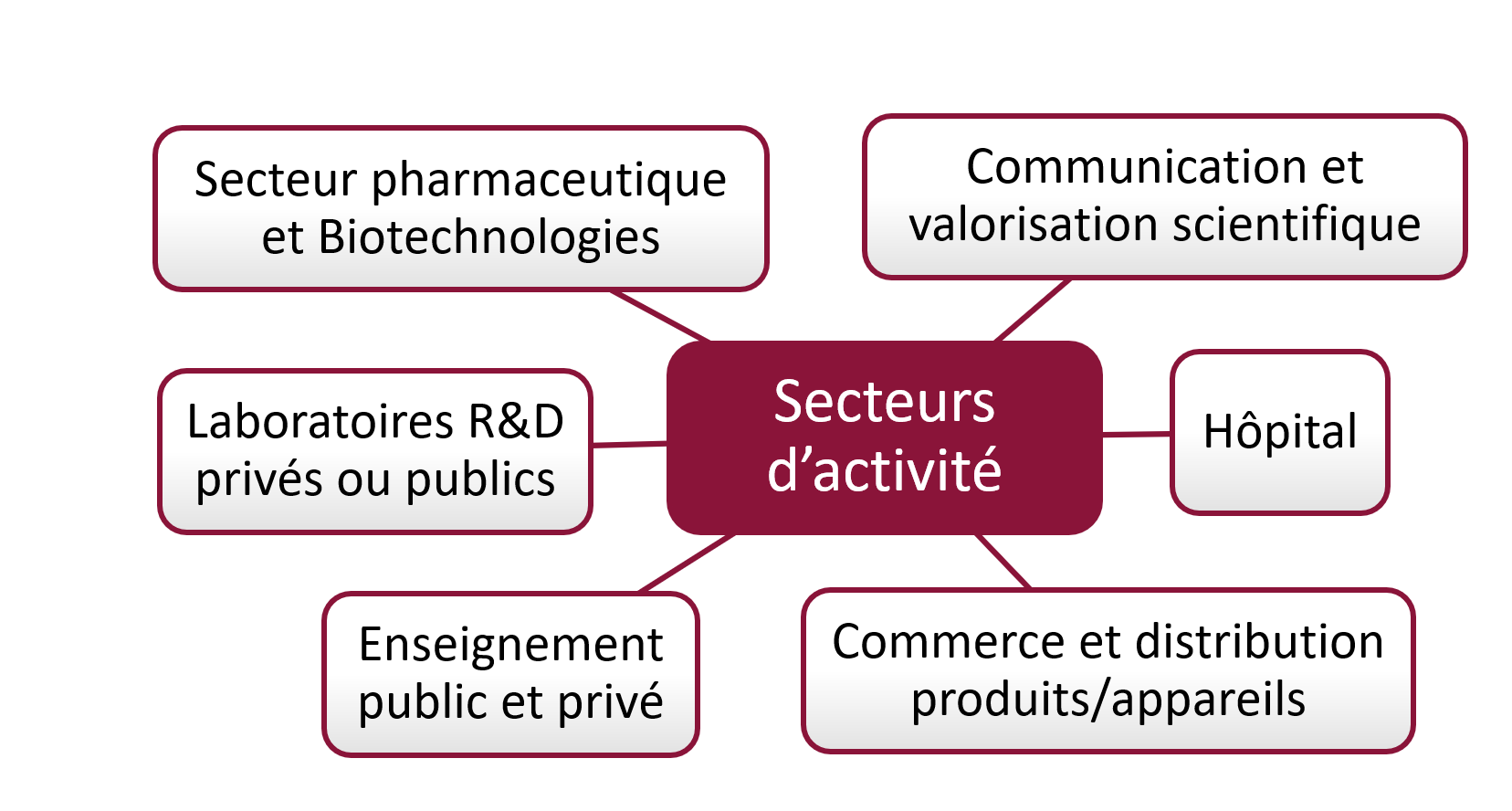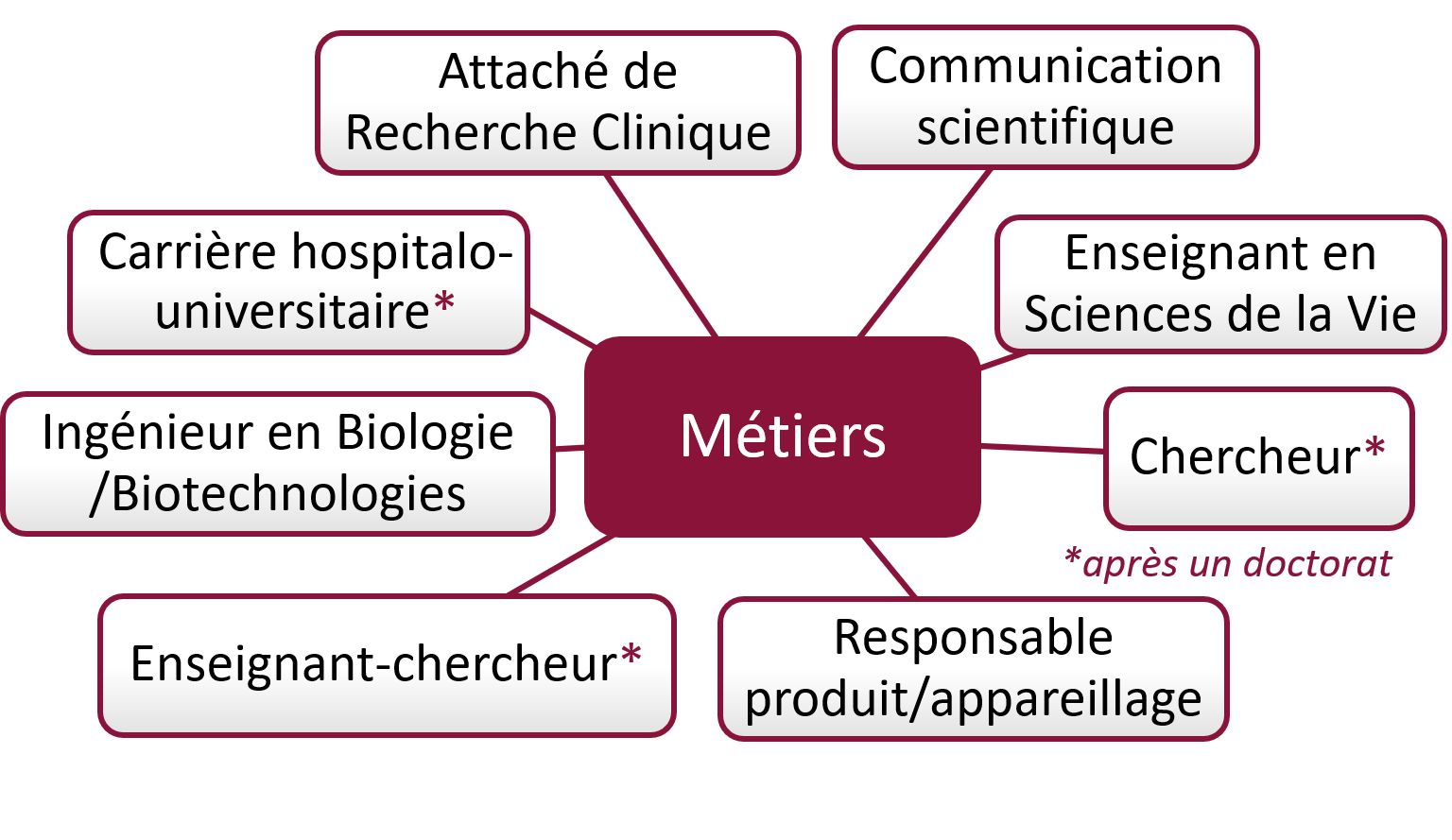Persons in charge
Sylvie van der Werf – Flore Rozenberg

Sylvie van der Werf – Flore Rozenberg
The Virology track of the BMC Master’s program is a training of excellence through and in research that aims to acquire the concepts, approaches and technologies of modern virology. An integrative vision calling upon different disciplines allows to approach epidemiological and ecological aspects, emergence mechanisms, viral pathogenesis (including oncogenesis) in human and veterinary medicine at the clinical, therapeutic and prophylactic levels.
The Virology program includes a set of courses common to the entire class with a specialization course:
In partnership with Sorbonne University, ENS Paris-Saclay and Pasteur Institute.
Bac +4
Master 1 BMC or equivalent; engineer; students in the health field (medicine, pharmacy) with a validated second cycle of medical studies with UE in microbiology/virology/parasitology, molecular and cellular biology or Inserm School or equivalent.
16 students
Initial or continuing education
Success rate in M2: 100
Continuation of studies in Doctorate: 93%.
Equivalent of 9 ECTS in virology or equivalent in molecular and cellular biology, immunology, microbiology.
Good to very good level in the required subjects.
French level C1 or equivalent. Good command of scientific English required.
Internship in a laboratory is a bonus.


